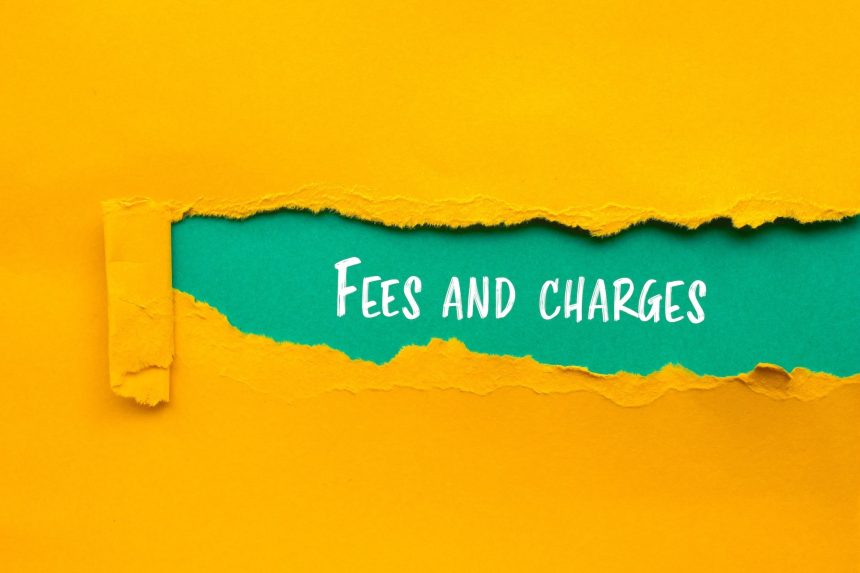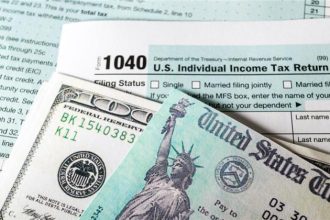Credit Sesame discusses the hidden fees that add up to big $$$ out of your paycheck.
A recent Census Bureau survey found that roughly two-thirds of Americans reported having at least some difficulty paying usual household expenses within the past week. Consumers live paycheck to paycheck and have difficulty making their funds last from one payday to the next.
The rising cost of credit has rightfully caused concern, but Americans who regularly use cash find it’s getting more costly to access their money. These costs can be the breaking point for budgets that are already stretched.
Various fees make accessing funds a little more expensive. These fees might seem small individually, but they can take a big bite out of household finances over time. This is especially troubling when the cost burden falls mainly on the poorest families.
You can make your money go further if you understand when these fees are applied and change your habits to avoid them.
Cashback fees take millions from consumers
It’s a common scene at a grocery store or other retailer. A customer goes to pay with a debit card, and the cashier asks, “Do you want any cash back with that?” Customers often ask for a small amount to be added to the charge against the debit card and handed over to them in cash.
This is a widely used way of topping up the cash in people’s wallets. Consumers may be so used to it that they haven’t noticed some retailers have started charging an extra fee for the service.
The Consumer Financial Protection Bureau (CFPB) studied eight major US retailers and found three charge a fee when customers add cash back to their debit card purchases.
At first, these fees may seem relatively harmless–50 cents to a dollar per transaction. However, they add up to significant sums. The three retailers, Dollar General, Dollar Tree/Family Dollar, and Kroger, receive an estimated $90 million yearly from these fees.
For the consumer, the problem is those fees are a fixed dollar amount often applied to a relatively small withdrawal. The fee can represent a significant percentage. For example, if you’re charged a dollar to get $20 in cash back, that’s a 5% cost. To put this in perspective, inflation is currently about 3%. Add a 5% fee when you get cash back, and you more than double the impact of inflation.
Prepaid cards are often inefficient
Prepaid cards are popular because they have many uses. Go to almost any retailer, and you see a rack with a large selection of gift card options. Prepaid cards are also popular as an alternative to cash for people with no bank account or who can’t get credit.
The problem is, prepaid cards can also come with a variety of fees. Here’s a partial list:
- Transaction fees
- Monthly fees
- Cash reload fees
- Inactivity fees
- Online bill payment fees
These are all fees that may seem small individually. But when they ding your account regularly, they can add up. This is especially harmful when applied to relatively small transactions and balance amounts.
ATM fees are no bargain either
There are over half a million ATMs in the United States. That makes them a convenient way to get your hands on your cash. However, they can also be very expensive.
You may pay twice if you use an ATM out of your bank’s network, paying the ATM operator and your own bank.
ATM operators tend to charge especially high fees in locations where they know customers have few other options, such as bars and airports. These high fees can represent an especially high percentage if you grab just a quick $20 bill or two.
Disappearing bank branches leave consumers with fewer options
One reason getting cash back with a debit card purchase or using an ATM is so popular is that, in many places, the neighborhood bank branch is a thing of the past.
According to the FDIC, as of June of 2023, there were 18,569 fewer bank branches in the United States than ten years earlier. Cash-back transactions or ATMs are an alternative for people in areas where bank branches have closed.
The cost of this falls disproportionately on poorer Americans. Impoverished communities are most likely to be underserved by nearby bank branches. Lower-income consumers are most likely to be accessing relatively small amounts of cash. As a result, cash-back and out-of-network ATM transaction fees would represent a higher percentage cost to those customers.
Tips for avoiding fees to access your money
Here are some ways you can reduce, or even eliminate, the impact of these fees on your budget:
- Be aware of who does and doesn’t charge these fees. The good news is that five of the eight retailers the CFPB examined did not charge fees on cash-back transactions.
- Re-examine how you use cash. Retail is becoming more and more cashless. As much as possible, try to find alternatives to using cash. Remember, though, prepaid cards are often not a cost-effective alternative.
- Avoid frequent small transactions. Most fees are a fixed dollar amount and comprise a smaller percentage if you can group some of your smaller transactions into one larger one.
- Plan ahead. Often, people use ATMs or cash-back transactions because they suddenly realize they’re running a little low on cash. Try to plan how much money you need and when you’ll need it, and don’t spend more than you planned.
- Look for banks with more convenient branches or ATM networks. Even if you can’t find a branch in your neighborhood, there are online banks that either have extensive ATM networks or reimburse ATM fees.
The above may all sound like small steps to take. However, as with the various fees discussed in this article, they can quickly add up to a meaningful amount of money. In this case though, that’s money that stays in your pocket.
If you enjoyed Sweat the small stuff to avoid hidden fees you may like,
Disclaimer: The article and information provided here are for informational purposes only and is not intended as a substitute for professional advice.
Read the full article here
















